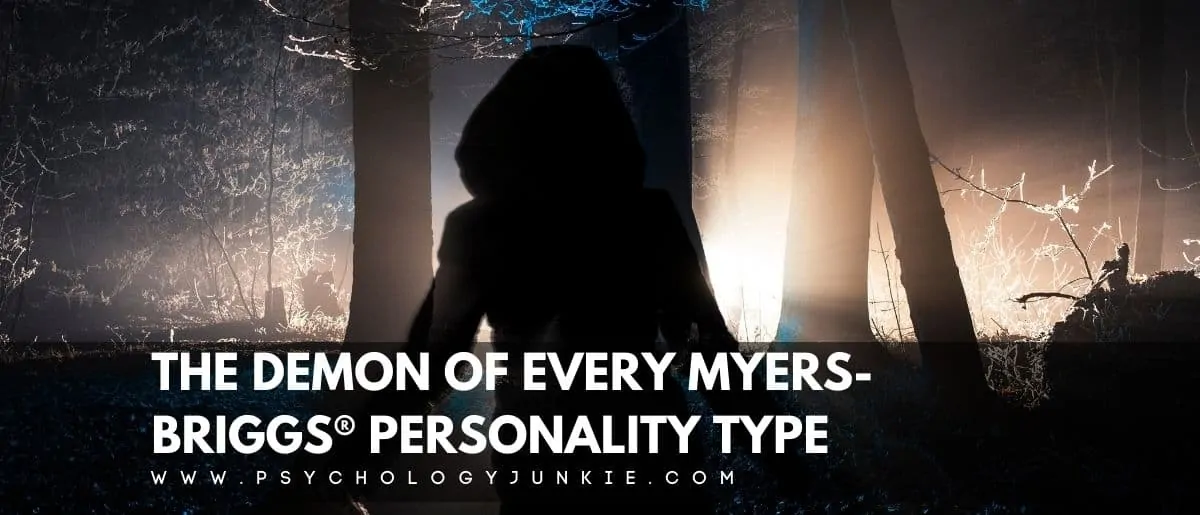The ISTJ Leader
Nothing screams leadership potential like the easily angered.
Said no one ever.

Good thing ISTJs know how to keep a cool head.
Unless it’s summer. Banana Boat can only do so much.
I’ve seen ISTJs labeled as “the best employee” in type. They’re chill (unless provoked), they’re dedicated (unless chocolate is around), they follow policy (unless it’s “wrong”), and they know their stuff, once learned (can’t argue with that). Often, you can find ISTJs directly assisting others with their tangible problems or working on individual projects behind the scenes, much like ISFJs do. Although, ISTJs honor the ability to actively participate in a task rather than having to remain behind closed doors.
Sure, peace and quiet is nice, but you don’t need to be in a library to fix a toaster.
Or to stop the stock market from plummeting.
Or to steal the Declaration of Independence.
You know, whatever your gig is.
We all gotta eat.
ISTJs want duties they can complete on their terms and love being recognized for their hard work. When you’re the person putting out all the fires, it can be nice to receive a thank you. A few fields you might find ISTJs in include technical support, bookkeeping, building maintenance, acting, painting, freelance writing, miming, and ghostbusting.
Let’s not box people into arbitrary career stereotypes, people.
Anyone can do anything.
ISTJs ultimately like knowing where a problem is so that they can help solve it. This willingness to make the lives of others less stressful by way of their magic can translate to boundless positions. If a project needs to be done, it needs doing. ISTJs are generally reliable and committed workers. Although quirky with their puns in tow, many respect authority and rules.
Knowing the general hierarchy of an organization and its expectations is important to the ISTJ. It is supposedly fairly common to see them in middle management. They are capable individuals willing to give others direction and seem to climb the ladder simply by doing what they do best: schmoozing.
Ha.
Not.
More like being great with responsibility.
Uncle Ben smiles down upon them.
However, ISTJs can be reluctant leaders as their goal isn’t to be calling all the shots for everyone. They want to complete everything within their range efficiently before moving towards the next task. ISTJs don’t seem to give themselves credit for their ability to manage what needs to be done, which has others both looking up to them and fearing their displeasure.
ISTJs believe how a task is accomplished matters. The method fights the madness.
If you’re going to stake the vampire, you better do it right.
Obviously, or they ain’t dying.
Redead. Undead the redead?
Whatever.
Estimated reading time: 10 minutes
They are Dedicated and Focused
Spend a few minutes talking to an ISTJ and you’ll learn they’re responsible when it comes to their duties. This most definitely transfers over to their leadership style. They thoroughly examine the facts at hand, oftentimes going over everything until comfortable with the material before allocating tasks to others.
Even Santa checks his list twice.
Introverted Sensing dominants are generally cautious about taking on too many projects at once. As ISTJs are efficient where ISFJs are familial, ISTJs appear even more aware of what is actually doable. Once they learn their staff, they will know who can accomplish what tasks and in what time frame to expect their completion. The ISTJ won’t give their people more work than they can knowingly handle.
Assuming someone isn’t just chatting for hours with Becky about how they rode their lawnmower on a dirt bike trail the weekend prior.
Todd.
We see you.
ISTJs and ISFJs are both great at focusing their work towards a goal incrementally. An ISTJ leader will thus have short-term objectives in mind for their staff and will guide others by this directive. They want to make sure everyone understands their expectations and knows their general direction at all times.
In a leadership role, ISTJs often prioritize the task at hand. They have the ability to weigh what is most pertinent in the short-term. What will provide the most upkeep. However, they do not have the same foresight that an INFJ or an INTJ would have with high Intuition. ISTJs do not always have a broader outlook in mind. They may overlook some of the organization’s far-reaching goals in order to keep the weekly workflow going.
An example might be an ISTJ police chief telling his force they need to meet their speeding ticket quotas for the month without realizing there are bigger fish to fry long-term. Possible actions with grander long-terms benefits could include sending the force out to stop a string of murders in the town (it would keep more people safe from the killer and save people get more speeding tickets because no one can drive properly anyway) or catching the criminals who keep trying to steal the KFC recipe. Both might prove a better use of the force’s time than meeting a quota in the long run.
And what are we if we can’t even keep our chicken a secret?
Their Mastery is Sought Out
Accountant is one of the most recommended careers for ISTJs. Probably because they have a critical, meticulous eye that they can turn onto any project. What better place is that useful than when handling money? Or teaching others their ways in a leadership role, for that matter?
I have a story for you.
And, it has nothing to do with organized crime, sadly.
Though I wouldn’t put that past an ISTJ.
Those sneaky critters with their good intentions and technical knowhow.
Once upon a time…
I had an ISTJ family member who worked at a bank. Actually, she still works there! She started off as a teller and worked her way up to management. She has been with the bank for over 20 years.
Did you whistle too?
Her coworkers actually begged her to apply for a leadership role until she finally gave in. She succumbed to her place as Bankland’s Princess.
Kidding.
Bankland’s Queen.
Prior to her throne, she had worried, wrongly, that she would let those around her down. But her coworkers at the time knew she was of the calm and collected sort, willing to patiently teach others the best way to handle customers and cash efficiently. The peasants were right about her.
Of course, Bankland has changed a bit over the years, but as she has grown within its borders, so has her knowledge base. For the Si dominant, the longer they are transfixed within a role, the more mastery they develop. No wonder she made such a great leader in this regard! She had years of experience and expertise. She had already teased out the best way to complete tasks within their proper guidelines so that it was second nature.
Something very special about ISTJ royalty is the level of mastery and competency they can reach when exposed to the same system over a period of time. They naturally find ways to better go about acquiring needed information without cutting corners. In their leadership role, they use this to help their people. ISTJs become a grand resource for anyone hoping to learn from them.
All hail the Queen.
They Have A High Competency Level
I perused a type forum recently (yes, scary) and found this little gem from an “ISTJ” that just so happens to be relevant here: “I don’t like being managed by incapable people, so I would rather do the managing.”
Woo, boy.
Someone grab the frosting so we can sugarcoat that.
The above statement is not unlike things I’ve heard from the ISTJs in my life. I think there’s a sentiment there that actually shows a valuing of Extroverted Thinking as opposed to Extroverted Feeling. Generally, high Te users care about getting to the point and completing the task while Fe users care about being aware of how others will respond to their words and actions. It’s all about prioritizing. ISTJs don’t privilege how the group feels about a given task, they care more about making sure things are accomplished the right way. Thus, capability is important to the ISTJ and their preference for this carries over into their view of the workplace hierarchy. Logically, it makes sense for the more practiced individuals to be at the higher rungs.
ISTJs are known for quickly becoming capable and competent in their positions. Thus, ISTJs do not want to be led by someone who literally cannot lead them. They do not want to answer to someone who has proven they have less knowledge or know-how within an organization than they do.
It makes no logical sense.
Understandable, really.
I wouldn’t ask my cat to type out this article.
After a solid hour, his paws would have written lfejflelfjelfjelkjfelj FEED ME lejflejflejfliejfe.
So articulate.
When ISTJs seek out leadership positions, they often do it knowing they have the capacity to lead via their skills. As leaders, ISTJs are willing to critique flaws so that the output from each individual is higher than before. If a leader isn’t directing their staff towards better production (and no, I don’t mean by micromanaging) then an ISTJ will likely become frustrated.
Unlike ISFJs, ISTJs don’t have the same issue with letting people go when they don’t produce at the standard by which they should. If an ISTJ can assess the level of capability a leader has or hasn’t, you can bet they can do the same for their staff. The confrontation that comes from firing might be unpleasant for the ISTJ, but not soul-draining like it would be the ISFJ.
They Can Have Trouble Improvising
Whenever you’re placed in charge, things seem to run smoothly until they suddenly don’t. Sometimes it feels like all of the problems start rolling in just to mess with you. Issues pop up from multiple areas and you are responsible for all of it as a leader.
Good luck, Chuck.
Extroverted intuition is a nasty little beast sometimes.
We can try to prepare for the worst. We can try to avoid worst-case scenarios, but they still find us. You can’t, for example, overprepare your way out of a car crash that was the other driver’s fault.
Having a plan doesn’t make it law and it’s too bad it doesn’t.
My plan was to be in the next Marvel movie.
Twelve years ago. And counting.
Although ISTJ leaders like to troubleshoot, unexpected problems are not their strong suit. ISTJs can be very resistant to change or risk in general as they do tend to rely on what they’ve developed through exposure. It’s not as simple as saying “if it works, don’t fix it,” but ISTJs do learn the best processes over time and don’t tend to seek out different methods until they’re thrust into a problem where they must.
If you’ve ever seen the SAW films, you’ll know that it’s possible for a creepy puppet to steal you away in the night and handcuff your foot to a pipe in the basement. Usually, he’ll leave you a butter knife or some other dull weapon to waste your time trying to get out of the trap with. Things aren’t always that enjoyable in the workplace, but you can easily walk into work on Monday and learn that someone shredded all of the company’s tax documents the Friday before and you’re responsible.
Similar horrors there.
If an ISTJ leader wants to prove successful in these dire situations, they need to look to their staff to help with brainstorming new solutions. Old methods don’t always work with new problems. Usually, the solution you need is in the mind of someone close by.
Just ask.
What Are Your Thoughts?
Did you enjoy this article? Do you have any thoughts or experiences to add? Let us know in the comments!
Find out more about your personality type in our eBooks, Discovering You: Unlocking the Power of Personality Type or The INFJ – Understanding the Mystic. You can also connect with Jami via Facebook, YouTube, or Twitter!
Other Articles You Might Enjoy:
The Flirting Style of the ISTJ Personality Type
10 Things That Excite the ISTJ Personality Type
5 Strengths of the ISTJ Personality Type
About the author:

Jami Cannon is an MBTI® enthusiast who hopes to shed more light on the SJ experience. She holds a very stereotypical degree in History (MA) and loves to learn all she can about the people around her.













Very interesting. Thank you.
I am an ISTJ and enjoy the posts. The assessments are amazingly accurate. I would suggest you include engineering, and in particular engineering management in your list of suitable professions for an ISTJ. My career in electrical engineering and very rapid advancement to management followed the pattern – and habits – articulated in your assessment. As a humorous aside ISTJ’s prefer their coffee warm and beer cold. Thank you for your posts.